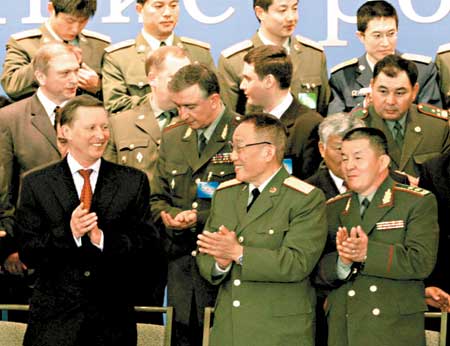Re: The Rise of the Russian Empire: Russo-Armenian Relations
RUSSIA is hosting the Group of Eight finance ministers’ meeting. So it is not surprising that the G8 nations have sought greater reassurances on smooth energy supplies from Russia to Europe and the world. The meeting coming as it does soon after Russia’s energy spats with its neighbours Ukraine and Georgia has brought to fore the continent’s concerns on Russian energy supplies, the largest after those from the Middle East. The whole of Europe was recently affected when Russia turned off its gas supplies to Ukraine.
While the G8 concerns on the energy front are understandable, it would be a mistake to expect Russia to surrender its position of strength on the issue. Of late, the former superpower has been sending powerful and distinct signals of its ambitions to play a bigger role on the world stage, just as it did until recently — until the collapse of the Soviet Union. Be it on the question of Iran or the ongoing row over Danish cartoons, Putin’s Russia has increasingly sought to charter a defiantly independent line from that of the West. Even on the question of Palestinian elections and the participation of Hamas in the peace process, Moscow has a distinct view of its own. Which isn’t bad for a balanced world.
Just as the Arab world is looking to expand its ties around the world, emerging players such as Russia and China are hoping to make new friends in the Middle East and North Africa. However, Russia can play a harmonising role on the world stage only by sorting out its problems at home, as in Chechnya, and with its neighbours to the West.
Link: http://www.khaleejtimes.com/Displaya... ion=editorial
Putin’s Russia
RUSSIA is hosting the Group of Eight finance ministers’ meeting. So it is not surprising that the G8 nations have sought greater reassurances on smooth energy supplies from Russia to Europe and the world. The meeting coming as it does soon after Russia’s energy spats with its neighbours Ukraine and Georgia has brought to fore the continent’s concerns on Russian energy supplies, the largest after those from the Middle East. The whole of Europe was recently affected when Russia turned off its gas supplies to Ukraine.
While the G8 concerns on the energy front are understandable, it would be a mistake to expect Russia to surrender its position of strength on the issue. Of late, the former superpower has been sending powerful and distinct signals of its ambitions to play a bigger role on the world stage, just as it did until recently — until the collapse of the Soviet Union. Be it on the question of Iran or the ongoing row over Danish cartoons, Putin’s Russia has increasingly sought to charter a defiantly independent line from that of the West. Even on the question of Palestinian elections and the participation of Hamas in the peace process, Moscow has a distinct view of its own. Which isn’t bad for a balanced world.
Just as the Arab world is looking to expand its ties around the world, emerging players such as Russia and China are hoping to make new friends in the Middle East and North Africa. However, Russia can play a harmonising role on the world stage only by sorting out its problems at home, as in Chechnya, and with its neighbours to the West.
Link: http://www.khaleejtimes.com/Displaya... ion=editorial






Comment